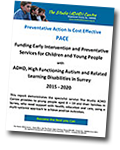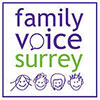Therapeutic treatment
The description of Attention Deficit Disorder implies a negative and debilitating array of symptoms. Clients are often resistant or in denial of the diagnosis, whilst at the same time aware that their behaviour is often destructive and their beliefs continually self-defeating.
Cognitive Behavioural Therapy focuses on changing unhelpful thoughts, beliefs and habits. It does not dwell too heavily on past lifetime events except to acknowledge mistakes made and the need to learn from them. Cognitive therapy identifies problem areas and works towards solving them. It can be helpful in developing self-esteem and confidence in clients.
In cases where clients are experiencing significant emotional difficulties – with depression, panic attacks, rage, mood swings and paranoia together with symptoms that are possibly related to addictive behaviour or misuse of substances, or when outside factors interfere with the client's ability to function in daily life, for example, following loss or bereavement, trauma, family breakdown, past abuse or involvement in criminal activities – then initial sessions deal with these issues in depth. However, it has been found to be unhelpful to dwell on the past for too long, and more useful to look towards finding the resources, strategies and coping skills that are inherent in all of us.
NLP (Neuro Linguistic Programming) is a similar style of positive solution-focused therapy that provides guidance in reframing patterns of behaviour and beliefs that have become "stuck". Therapy involves helping the client look at mental and emotional distress, and offers interventions using verbal, visual and written expressions, accessing skills and resources that can be used positively. Often small tasks are set between sessions to keep on track.
What is NLP therapy?
Having an outcome – or goal – knowing what you want from life.
Choices – identifying choices and alternatives.
Change – being prepared to change behaviour until positive results are achieved.
Difference – understanding people's different "maps" and views on life.
All behaviour has a positive intention – i.e. negative behaviour could be to acquire attention, therefore there is usually a better way to satisfy the same intention.
Increased positive communication achieves better results. Language should be used to encourage and create change – i.e. and what would it be like if...
There is no failure – only feedback. Learning from negative behaviour is information that can be used more positively.
Latest news
Annual report published
Our last two annual reports can be found on the menu under "About us".
The case for early intervention

Our "Preventative Action is Cost-Effective" (PACE) report presents the economic and social arguments for providing early intervention and preventative services for children and young people with ADHD, high functioning autism and related learning disabilities in Surrey.
The Studio's multi-systemic approach has been shown to achieve positive outcomes in such cases and, as this report shows, it has the expertise to fill this gap in special needs provision.
View or download the PACE report.
CAMHS survey results

Following a period of research among parents, carers and young people who completed online surveys and attended stakeholder events across Surrey between July and October 2014, Surrey's Child & Adolescent Mental Health Service (CAMHS) has produced its Engagement Report, which summarises key messages regarding perceived unmet needs and priorities for the service.
Family Voice

Family Voice Surrey (FVS) is the official Parent Carer Forum for Surrey, working with key decision-makers in education, health and social care to represent the families of children and young people with additional needs. You can read more about it on its website.
We urge you to sign up to be represented by FVS.